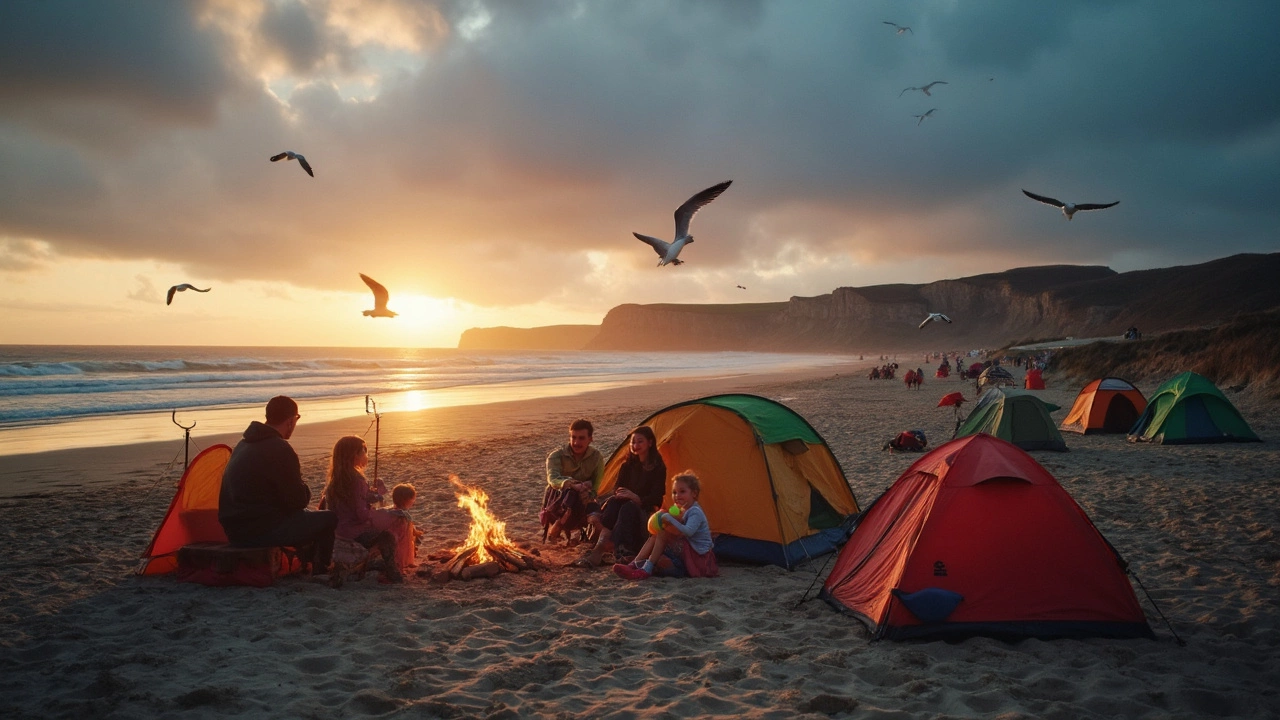Seaside Camping: Your Practical UK Beach Guide
There’s nothing like falling asleep to the sound of waves. Whether you’ve got a motorhome, a tent, or just a sleeping bag, a night on the sand can be magical. The trick is knowing where you can pitch, what you need, and how to stay safe.
Finding Legal Beach Campsites
First thing – don’t assume any stretch of shoreline is free to camp. In England and Wales most public beaches forbid overnight stays, but a few council‑run sites and private campgrounds let you park right by the water. Look for places that mention “coastal,” “beach access,” or “seaside pitches” in their description.
Start with the official council websites. They list approved spots, any fees, and whether you need a permit. Apps like "Park4Night" and "Campercontact" also flag legal beach sites – just double‑check the comments for recent updates.
If you’re near Scotland, the rules are looser. The Scottish Outdoor Access Code allows wild camping on most unenclosed land, including many remote beaches, as long as you follow the Leave No Trace principles. Still, avoid busy tourist spots and respect any posted signs.
When you find a site, call ahead if possible. Some places close for the off‑season or require a booking slot. Early‑morning arrival gives you a better chance of securing a spot before the day‑trippers fill up the parking area.
Gear and Safety for Night by the Sea
Coastal weather changes fast. Pack a waterproof tarp or a sturdy groundsheet – sand can get damp, and a rainstorm will turn a comfy spot into a soggy mess in minutes. A compact windbreak helps keep the wind from blowing your sleeping bag around.
Bring a good quality sleeping pad. Sand can be hard, and a pad adds insulation from the cold ground. Pair it with a sleeping bag rated for at least 5°C lower than the temperature you expect.
Lighting is crucial. A headlamp with a red mode won’t scare wildlife and keeps your night vision intact. Keep a small flashlight for navigating the dark beach safely, especially if you need to step over rocks.
Don’t forget a basic safety kit: a first‑aid pouch, a multi‑tool, and a portable charger for your phone. Let someone know where you’re camping and your planned return time – mobile signal can be spotty on remote coasts.
Finally, respect the environment. Pack out all rubbish, avoid digging holes, and use a portable toilet or a disposable bag if there are no facilities. Leaving the beach as you found it means others can enjoy it too.
With the right spot, a few essential items, and a bit of planning, seaside camping becomes a highlight of any UK road trip. Pack your sense of adventure, follow the rules, and you’ll be listening to waves instead of traffic while you drift off to sleep.
-
 VIEW POST
VIEW POSTBeach Camping: Why People Love Sleeping Beside the Waves
Jun, 26 2025|0 CommentsDiscover why beach camping is so popular. Get insider tips, fun facts, pros and cons, and real-life inspiration for your next coastal camping trip.